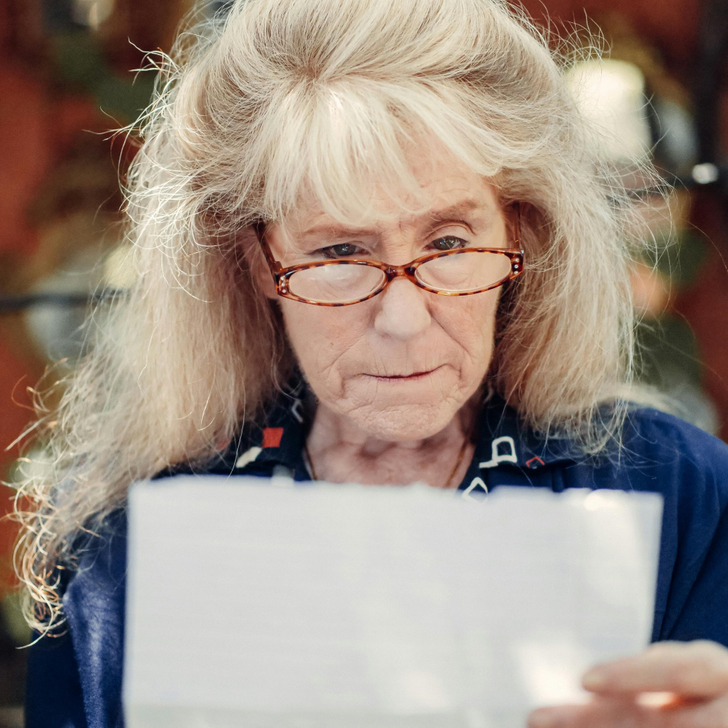I Gave My Estate to My Adopted Son—Now My Biological Children Want a Share

A Life of Love and the Sudden Shattering of Trust
For most of her life, Lauryn believed that family was an unbreakable bond. At 78, she had raised three biological children on her own and later adopted Brandon, who became a central part of her life. Over the years, her children grew busy with their own lives, but Brandon remained close, checking in regularly and offering support whenever needed. She always saw all four of them as equals, deciding long ago that her inheritance would be divided equally among them.
But everything changed when her eldest daughter handed her a set of documents. These papers would grant her three biological children power of attorney over her affairs while leaving Brandon out entirely. The daughter claimed Lauryn had been getting forgetful and eccentric in her old age, insisting that these forms would ensure things were taken care of properly. Power of attorney, she explained, would allow them to make decisions for her—especially regarding her finances and medical matters. She pressured Lauryn to sign, saying it was for her own good.
What followed was even more shocking. The daughter made a claim that Brandon was deep in debt and had serious issues. Lauryn felt disbelief but didn’t act on her words immediately. Later that evening, she asked Brandon if the accusations were true. He denied them, insisting he was doing fine.
After reflecting on what her biological children were trying to do, Lauryn realized she couldn’t keep her inheritance divided equally anymore. She decided to change her will and leave everything to Brandon instead of the others. The following week, her children called to apologize and beg her to reconsider, but she was too hurt by their actions to change her mind.
Rebuilding Trust and Protecting Her Legacy
Lauryn’s story highlights the complex dynamics that can arise within families, especially when it comes to financial and legal decisions. Her experience shows how easily trust can be shaken, and how important it is to protect one’s own well-being.
One key step in this process is to follow your gut feeling and take time to reflect before making any major decisions. It’s natural to feel overwhelmed, and stepping back for a full week of quiet reflection can help you gain clarity. Use this time to think about what was important to you before the situation arose, what has shifted, and what still feels right. Decisions that stand up to this kind of reflection are often the most lasting.
Another important step is to reframe the situation into a protective plan. This means taking control of your decisions rather than allowing others to dictate them. Consulting an elder law attorney on your own, without family involvement, can help ensure that your interests are safeguarded. Ask for a straightforward package that includes an updated will, a living trust if necessary, powers of attorney, healthcare directives, and clear beneficiary designations. Make sure everything remains in your name unless you choose otherwise.
If you decide to leave your assets to someone specific, like Brandon, consider writing a brief letter that outlines your reasons. This can help prevent future conflicts by clearly communicating your intentions. Express your love for all your children and explain how the person’s consistent care played a role in your decision.
Financial Support and Setting Boundaries
When it comes to financial support, it’s important to only give what doesn’t jeopardize your own safety or stability. Don’t solve someone else’s crisis by creating one of your own. Maintain an emergency fund and protect your home. If you want to assist someone, consider giving small, manageable amounts over time or offering a written loan with agreed-upon repayment terms.
For more significant help, make it conditional on a clear, well-thought-out plan rather than acting out of panic. Start by offering support in non-financial ways, such as attending a credit counseling session together. A genuine emergency should never require sacrificing your own security.
Healing Through Communication
Finally, consider suggesting a reset that openly addresses the hurt and outlines expectations for future trust. Request a single, mediated conversation, possibly with the help of a counselor or a trusted third party. Be direct about what caused you pain and what changes are necessary if you’re to consider opening up again, whether emotionally or financially.
Any future decisions about your care should prioritize your preferences, your doctor’s advice, and your timeline. If your family can respect that, there’s room for healing.
Lauryn’s story serves as a powerful reminder of the importance of protecting yourself while maintaining clarity. By taking control of her decisions and setting boundaries, she found a way to move forward with peace and confidence.
Post a Comment